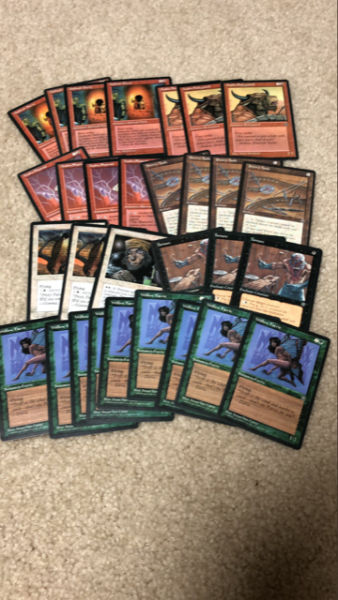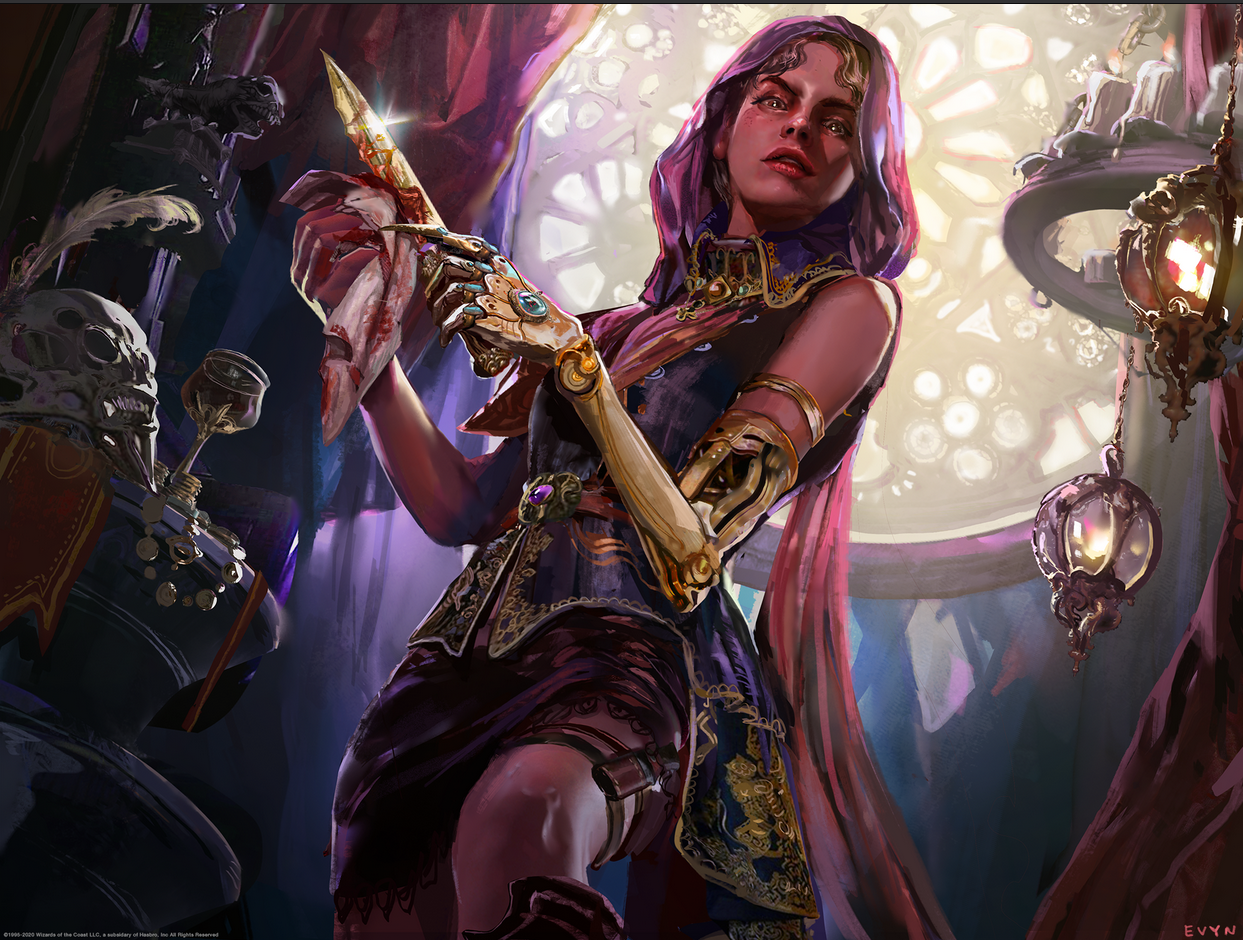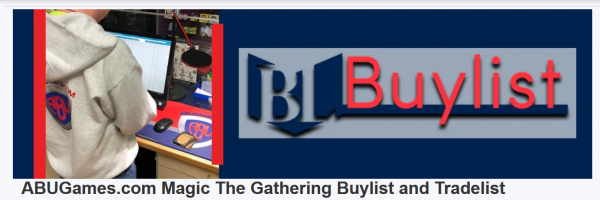Are you a Quiet Speculation member?
If not, now is a perfect time to join up! Our powerful tools, breaking-news analysis, and exclusive Discord channel will make sure you stay up to date and ahead of the curve.
If you live on planet Earth, you may find you have fewer viable activities to keep busy nowadays. COVID-19 has essentially brought the world to its knees, impacting sports, special events, work, gyms, conventions, and more. Of course, included in this list are all major in-person Magic tournaments.
Despite still [fortunately] working full time and having two children at home, I still find myself with a bit more free time than I previously had. This includes at least an hour and a half each day saved because I don’t have a commute—I’ve been working from home since March. Fewer activities both for myself and my kids mean more time for sitting around the house seeking out new forms of entertainment.
One of the effective fillers I’ve found for this downtime comes from Magic. I can’t play in person or attend a MagicFest to buy and sell cards, but I’ve found other ways to tap into this amazing hobby to spend my time and keep entertained.
This week I’m going to share three ways Magic has filled a void for me and kept me entertained (and arguably sane) during this pandemic.
Seeking Out Arbitrage
This can be a time-consuming approach to making Magic a little bit cheaper to play. You may even find some profitable opportunities. If you find you’ve got more time to kill during COVID-19, you could try this calming, productive practice. I’ve written about the store credit arbitrage practice time and again, but for new readers, I’ll provide a brief summary and then share recent examples.
The practice itself is simple but also time-consuming. You pull up two Magic websites—you can pick from eBay, TCGplayer, Star City Games, Card Kingdom, ABUGames, Cool Stuff Inc, Channel Fireball, etc., but one of the two sites must have a posted buylist that’s easy to browse. Then you examine the stock of one site and compare it against the buylist of the other site. If the math works out such that you can buy cards from site 1 and sell to site 2 for profit (usually requires accepting store credit), then add it to your cart. Do this enough to make an order worth the shipping, and pull the trigger.
I like this procedure even more when working with two major vendors with buylists, so that you can flip store credit back and forth rather than continually investing cash. But it may be that you have to start with cash before morphing to store credit. Don’t forget that if you’re using ABUGames, you’ll need to account for their inflated credit numbers—this makes it a bit more complex but also easier if you can find the right cards to flip.
I’ll share two recent examples.
First, I noticed a pricing discrepancy in International Edition cards between Star City Games and the rest of the market. It seems they still have lower prices on these cards, which have climbed in popularity and price recently. I brought up Star City’s International Edition stock and compared it alongside ABUGames’ buylist. Sure enough, I found opportunities to spend cash at Star City Games to obtain store credit at ABUGames at a rate of approximately 63%. That is, $100 in ABUGames store credit cost me about $63 in cash.
I put together a cart containing many random International Edition rares including Roc of Kher Ridges, Deathlace, Fastbond, Elvish Archers, and more. Over fifty cards in all were available to flip. In many cases, Star City’s “Played” condition could still pass for near mint on ABUGames’ grading guide (though this is never a guarantee and should not be assumed). At the end of the day, I was able to assemble an order that cost just under $300 (including shipping) and would net me around $475 in store credit.
As of right now, ABUGames didn’t have a ton of compelling cards in stock so I had to get creative in order to avoid picking up severely overpriced cards. But a couple weeks ago, this wasn’t the case. As a second example, I obtained ABUGames store credit and used it to pick up a played Hellfire for $43.69. Card Kingdom has recently paid as much as $100 for near mint, or $70 for heavily played copies. This (and similar Legends cards) can be used to create credit arbitrage from ABUGames to Card Kingdom…if ABUGames ever restocks!
Sorting and Picking Commons and Uncommons
Here’s a funny story to inspire readers. A few years ago, I decided to pick up a complete set of Homelands. I found a set on eBay for about $45, and it came to me with numerous duplicates of virtually every card. Clearly the seller didn’t value Homelands cards all that much (can you blame them?). I promptly buylisted the Reserved List cards and flagship uncommons (i.e. Merchant Scroll) but I was left with a ton of extra Homelands bulk.
What did I do with it all? I kept one copy of each Homelands card for myself, and put the rest into a box. Then, every time I shipped a buylist to ABUGames or Card Kingdom, I checked their buylist for Homelands cards. Any time they offered a few cents to a nickel on one of the cards in my extras box, I added it to the list.
A couple years later, and I’ve converted nearly every extra bulk Homelands card into a nickel—dozens if not 100-200 virtually worthless cards into store credit. Here’s all that is left:
Seven cards. Just seven unique cards remain from a box of 100’s of duplicate Homelands cards.
I tell this story to highlight a practice I pursue whenever I have spare time (which is more often nowadays). Since I’m shipping cards to buylists anyways, I like to browse my modestly sized collection for bulk commons, uncommons, lands, and tokens that I can ship for incremental store credit. The cost to ship one card to a buylist is the same as the cost to ship 40 cards because USPS charges the same for thick envelopes from one to four ounces. Why not fill up that space with some bulk?
If you’re thinking this is overwhelming and that your bulk collection is too large, then start small. If I don’t have hours to spend looking for nickels, I just look at a couple sets’ commons and uncommons for nickels and dimes. Then I rotate through the sets as I submit multiple buylists. By the time I finish the last set and go back to the beginning, the buylist changed and new cards are included.
Of course, this is easier if you have your cards sorted by set and color. This is another activity I’d highly recommend if you’re looking to kill time during this pandemic. The practice can be done with multi-tasking (doesn’t require your undivided attention) and can make picking for nickels and dimes much easier.
Magic Arena
Last but not least, one of the best things I’ve discovered during this pandemic is Magic Arena. While not a Magic finance strategy, it is a Magic activity that helps pass time and keeps me engaged.
That said, Magic Arena does hold a couple possible finance benefits. Most obviously, there are tournaments you could enter and win to make some money. I haven’t tried any yet and they’re probably more competitive than your weekly FNM, but they are still opportunities to make some money from Magic if you’re a good enough player and are missing in-person events.
But the other benefit to playing Magic Arena is my ability to keep up with the Standard metagame. I used to ignore new cards and Standard altogether, likely missing out on speculation opportunities. Now I’m fully versed in the metagame, bannings, and shifts in strategy that could lead to opportunities for speculation.
For example, I know that the recent bannings has led to the rise in decks that leverage Yorion, Sky Nomad. As Ikoria ages, Yorion could see a small price bump and could be worth picking up at just a buck each. Rogues are also all the rage right now, and Thieves' Guild Enforcer is a key card in all variants of the list. So I’m not ignorant of the fact that the card is suddenly worth a few bucks.
Temple of Deceit and Clearwater Pathway // Clearwater Pathway are also worth keeping an eye on if Dimir Rogues remains top tier. Lastly, Agadeem's Awakening // Agadeem, the Undercrypt is one I’m going to watch closely for its utility in the Rogues (and other) lists.
By following the metagame and playing Magic Arena, I’ve been better able to follow these trends and metagame calls. It’s even making it easier for me to find bulk worth keeping, such as Drown in the Loch and, more recently, Cling to Dust.
Wrapping It Up
Recently, I shared a tweet that communicated my sentiment towards Magic.
The above statement really highlights how I’m feeling during this pandemic. It’s hard staying home day after day, and I find myself scrounging for activities to keep me entertained while also feeling productive.
If you’re in the same boat, then I highly recommend Magic as that outlet. I shared three different ways I’ve found Magic to fill voids throughout my day. I’ve been spending my newfound free time hunting for credit arbitrage, picking my bulk to ship to buylists, and learning the Standard metagame by playing Magic Arena. Each of these activities is keeping me sane while potentially making Magic a little bit cheaper to play.
I recently used my ABUGames credit arbitrage to pick up a pair of heavily played Beta Counterspells. I hope to grind out a little more credit to complete the playset for my Old School deck. While this is a priority for me, in reality I’m in no rush. This pandemic isn’t ending anytime soon, so I am confident I’ll find the time and the arbitrage to help me finish this playset at a modest discount to the market, while helping me stay engaged and distracted in the process











